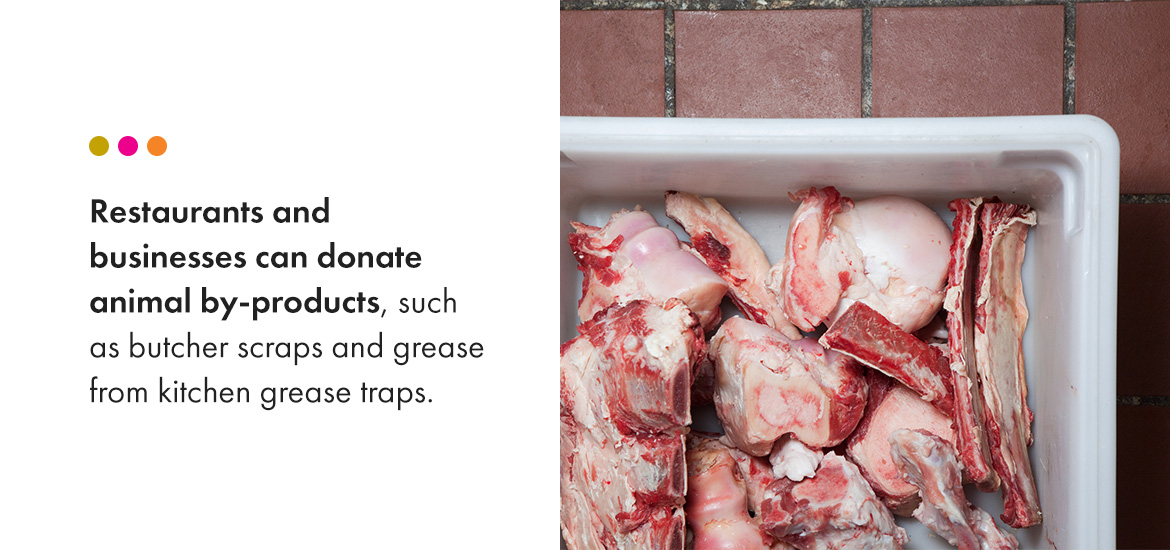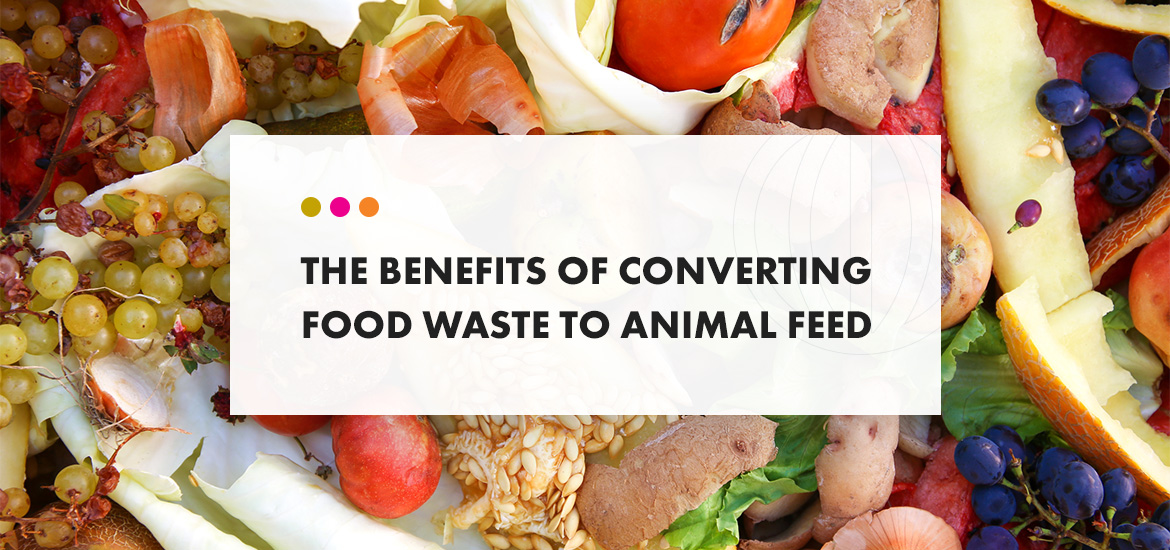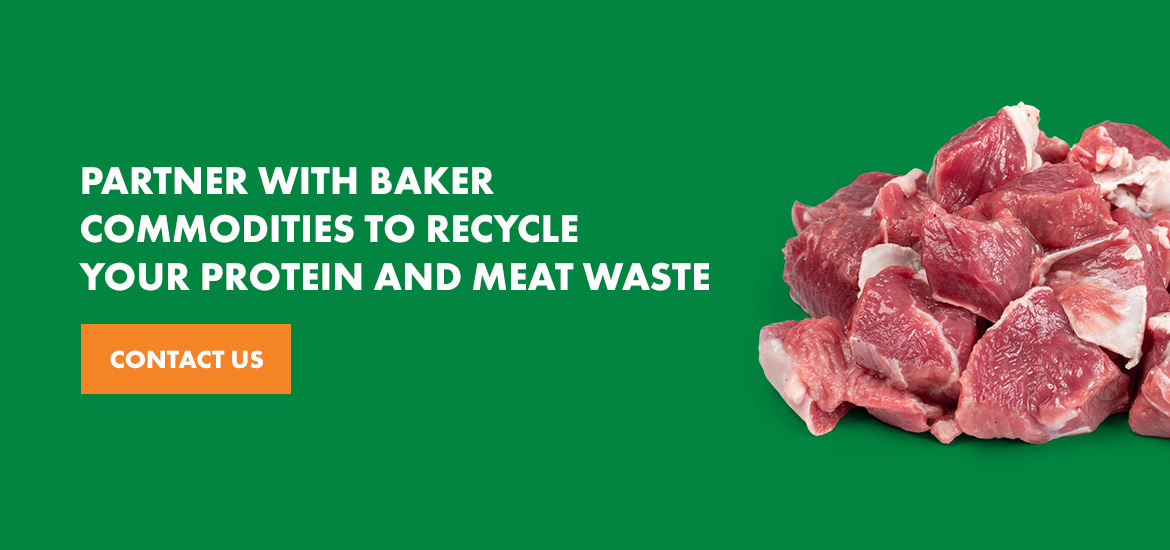The Benefits of Converting Food Waste to Animal Feed
Table of Contents:
- What Is Food Waste?
- Why Is Reducing Food Waste Important?
- How Can We Reduce Food Waste With Animal Feed?
- The Benefits of Using Food Waste to Feed Animals
Restaurants and businesses in the hospitality industry produce food waste from unsold food, uneaten prepared food and grease. Since this food is no longer safe to consume, businesses must dispose of or reuse it. More than 55% of food waste ended up in landfills in 2018 alone. Food products release methane gas when they decay in landfills, but using effective methods to recycle food waste can prevent this process.
Using environmentally friendly ways to recycle and reuse food waste can significantly reduce the impact on the environment and the population. When you reuse food waste as animal feed, you can help reduce methane gas emissions and decrease costs. Donating food waste for animal consumption is one of the most preferred ways to reduce food waste, and it can have a positive impact on the climate.
What Is Food Waste?
According to the United States Department of Agriculture (USDA), approximately 30-40% of the nation’s total food supply ends up as food waste. The United States Environmental Protection Agency (EPA) describes wasted food as food that is not utilized for its intended purposes, and it comes from the following sources:
- Retail stores’ unsold food
- Uneaten prepared food
- Cafeteria and restaurant kitchen trimmings
- Unused household food
- Food and beverage processing facility by-products
Wasted food refers to excess food that is still valuable and can safely feed people. Restaurants and businesses can donate this type of food to people because it is safe to consume. Food waste refers to inedible food that humans cannot consume because it is spoiled or was previously served and uneaten. Food waste can end up in landfills, combusted with energy sources or used for the following purposes:
- Feeding animals
- Composting
- Anaerobic digestion
Why Is Reducing Food Waste Important?
Reducing food waste is important because accumulating food waste is a growing challenge in the U.S. In 2018, the EPA estimated that institutional, commercial and residential sectors produced approximately 63 million tons of food waste. In the same year, the EPA also estimated that food filled America’s combustion facilities and landfills more than any other materials.
When food sits in landfills, it cannot return to the soil for natural decomposition. When food rots in a landfill, it releases methane gas into the atmosphere. The USDA and EPA hope to reduce food waste by 50% by 2030. Restaurants and businesses can help the country reach this goal by reducing food waste with animal feed.
How Can We Reduce Food Waste With Animal Feed?

We can reduce food waste by donating unusable food products to farms, pet food producers and zoos. Animal feed producers often use fats to add nutrients to their products. Blending animal fats from poultry and mammal tissues with recycled cooking oil creates feeding fats that farmers and feed producers can use as stock feed ingredients. The fats found in food waste also add caloric and nutritional value to animal feed, making it a valuable resource.
Restaurants and businesses can donate animal by-products, such as butcher scraps and grease from kitchen grease traps. If your business produces food waste, you can hire a company to collect your establishment’s animal by-products, process them and transport them to farms, zoos or animal feed producers.
The Benefits of Using Food Waste to Feed Animals
Converting food waste to animal feed is the most preferred way to reduce wasted food on the food waste hierarchy after source reduction and donation to hungry people. Since food waste is not safe for human consumption, feeding farm animals and using it in pet food production is an effective way to reuse it. Using food waste for animal feed is an excellent food waste recovery method because it has the following benefits:
Cost Savings
When livestock feed prices increase, farmers spend more money to maintain their farms and produce food products. As a result, they must increase their prices to make up for their expenses, causing companies and consumers to pay higher prices for food. When restaurants and businesses donate food waste to help feed livestock, farmers can save money on animal feed, reduce their prices and help local businesses and residents save money.
Your restaurant or business can also save money on waste removal fees when you donate food waste for animal consumption. The less food waste you discard, the less you will need to spend on waste removal.
Environmental Benefits
Using food waste to feed animals is also incredibly beneficial for the environment. Donating food waste for animal consumption reduces the amount that ends up in landfills. When animals eat food waste, they prevent it from rotting and releasing methane gas into the atmosphere.
Methane gas is a greenhouse emission that affects the earth’s climate and temperatures, and it is 25 times more potent than carbon dioxide. Minimizing food waste with animal feed can reduce methane emissions and help protect the earth’s atmosphere from greenhouse gases. Additionally, converting food waste into animal feed conserves energy because it reduces the amount of food waste eliminated using controlled combustion.
Donating food waste for animal consumption also increases available farming land so farmers can produce more crops for human consumption. Farmers often use a significant amount of land to grow soybeans and corn for animal feed. When they can nourish their livestock with food waste, they can shift their land and focus to other crops.
Partner With Baker Commodities to Recycle Your Protein and Meat Waste
Recycling food waste is an important way to protect the environment and reduce costs. Restaurants and businesses increasingly contribute more food waste to landfills each year, but there are effective ways to reduce this practice. Donating food waste for animal consumption is one of the most preferred food waste reduction methods.
Baker Commodities is a family-owned, carbon-negative business with decades of experience managing and recycling waste. Since 1937, we have helped businesses safely recycle their waste for useful purposes and supported efforts to remove greenhouse gases from the environment as a company. When food sits in landfills, it releases methane gas into the atmosphere and contributes to the earth’s changing climate, but we can reduce the release of harmful greenhouse gases by converting waste and feeding it to livestock and other animals.
Reduce the amount of waste your restaurant or business adds to landfills by donating your food waste to create environmentally friendly feeding fats. Baker Commodities collects animal by-products before treating them to eliminate pathogens and deliver high-quality fats and proteins to companies for animal-feed production. Contact Baker Commodities to learn more about how we can help you donate food waste and improve your environmental impact.




